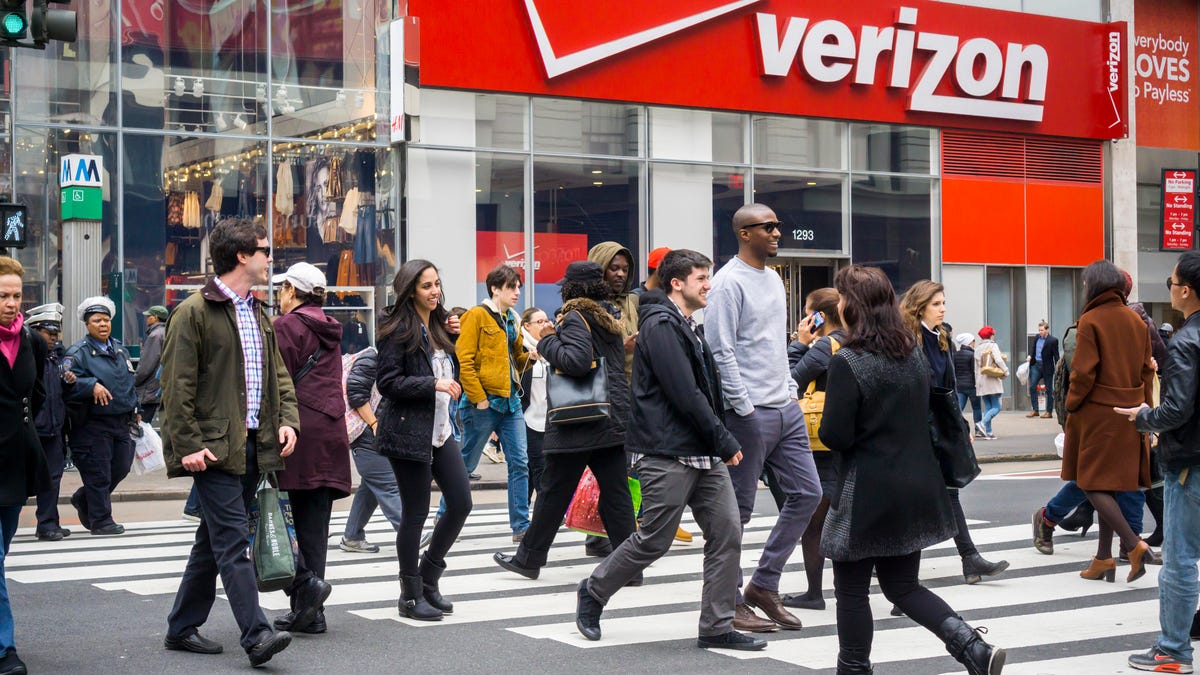Apple Watch was one of the key engines of Verizon's growth
Otherwise, the company lost 24,000 phone customers in the first quarter. In the background is a Justice Department investigation into possible collusion with AT&T.

Verizon saw a slowdown in its core phone business.
For Verizon , no news is bad news when it comes to customer growth.
After a flurry of promotional activity in 2017, which saw the return of unlimited data plans in a big way, as well as media bundles like free Netflix for T-Mobile subscribers and HBO Go thrown into AT&T wireless plans, US wireless carriers backed down with fewer discounts or freebies in the first three months of 2018.
Verizon, the nation's largest wireless carrier, took a hit from the inactivity, posting a loss of 24,000 phone customers and 75,000 tablet customers.
In total, Verizon added 260,000 net retail postpaid customers -- those who pay at the end of the month -- in the first quarter of the year. But the gains were largely from smartwatches like the Apple Watch. The company did add 220,000 smartphone customers, suggesting a steep drop-off in basic phone customers.
Verizon has a few headaches to deal with. On Friday, The New York Times reported that the Justice Department is investigating whether Verizon, rival AT&T (which reports its own earnings on Wednesday) and trade group GSMA were colluding to make it more difficult for people to switch carriers by thwarting a technology called eSIM. An eSIM would have allowed people to switch carriers without the hassle of switching the tiny SIM cards in their phones .
Verizon dismissed the accusations.
The New York-based telecommunications company would much rather be talking about 5G wireless technology. The company was the first to deploy 5G as a broadband replacement service in a limited trial, but it has vowed to launch some sort of mobile version of the service this year. Verizon is in a horse race with the other carriers to bring 5G to customers in a meaningful way over the next 12 to 18 months.
Verizon CFO Matthew Ellis said the company was on track to deploy 5G as a residential service to three to five markets in the second quarter, although he was light on the specifics.
On the wireline Fios side, Verizon added 66,000 Fios Internet connections, but lost 22,000 Fios video customers, with the company noting that consumers were cutting the cord and relying on more online video services.
On the wireless side, Ellis said the company was focusing on building a strong relationship with its customer in order to sell more services. He also cited the low turnover rate for the period.
Verizon posted a first-quarter profit of $4.67 billion, or $1.11 a share, compared with a year-ago profit of $3.55 billion, or 84 cents a share. Excluding one-time items, the company earned $1.17 a share.
Revenue rose 6.6 percent to $31.77 billion.
Analysts pegged Verizon to post earnings of $1.11 a share and revenue of $31.2 billion, according to Yahoo Finance.
The financial results were strong enough to push Verizon's shares up 2.7 percent to $49.99 in premarket action.
First published April 24, 4:45 a.m. PT.
Update, 9:22 a.m. PT: To include executive comments and additional background.
Follow the Money: This is how digital cash is changing the way we save, shop and work.
'Alexa, be more human': Inside Amazon's effort to make its voice assistant smarter, chattier and more like you.

